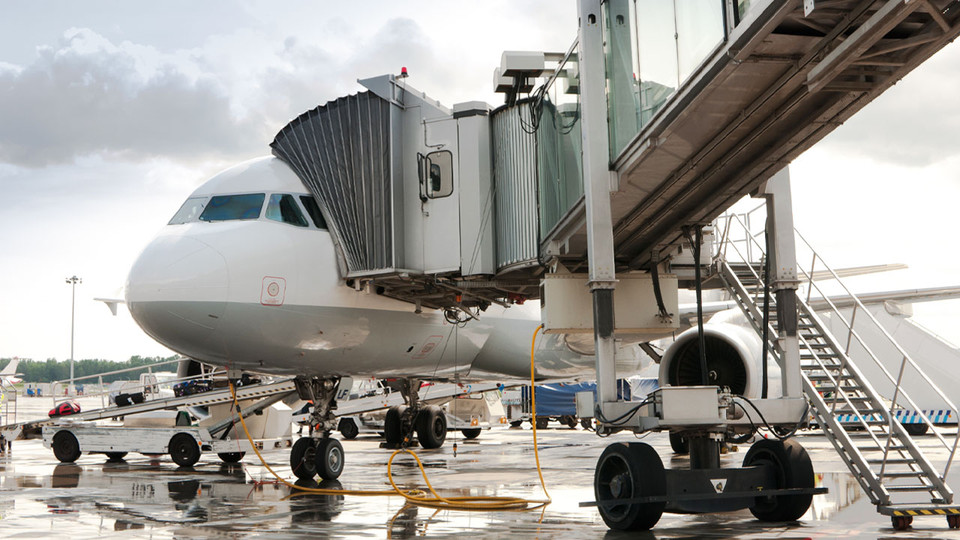Aug 6, 2024 Jan Uphues
ShareIn the ever-evolving aviation industry, small to medium-size airline operations face a distinct set of challenges that can impact efficiency, service quality, and overall competitiveness. Small and medium-sized definitions - i.e. 10 or 15 departures per day of an airline - make up a large part of the total volume of airline ground operations due to the large number of airports served. However, it is usually the complex and large operations of the individual hubs that receive the most attention for the organization.
The responsible employees at the smaller operations - regardless of the size of the airport itself - often find themselves in a tricky situation: they are often solely responsible for the overall coordination and often do not have the necessary management and coordination tools for tasks in the areas of stands, boarding or baggage, for example. The teams and budgets are small. Recognizing these challenges is the first step toward addressing them effectively.
Key Challenges for Smaller Airline Operations
Resource Constraints
Smaller airline operations often grapple with limited resources, operating on tight budgets and minimal staff. Employees frequently have to wear multiple hats, managing everything from customer service to ground operations. This multitasking can lead to overworked staff and potential dips in service quality. Software solutions can alleviate these pressures by streamlining staff allocations and responsibilities without the need for constant back-office support.
Operational Complexity
Ensuring seamless coordination between central hubs and smaller stations is inherently complex, especially with a limited on-ground presence. Effective communication and meticulous logistical planning are critical to maintaining operational efficiency and service quality. Robust solutions facilitate better communication channels and provide tools for precise logistical planning, helping to manage the complexities of smaller operations.
Irregular Flight Schedules
Unlike larger hubs, smaller operations often deal with irregular flight schedules, complicating scheduling and disrupting service consistency. Managing these irregularities requires meticulous planning and flexibility. The local teams need aid in managing these schedules more effectively and tools for dynamic planning and real-time adjustments to ensure smooth operations despite the irregular flight patterns.
Market Competition
Competing with larger carriers and well-established local airlines poses a significant challenge for smaller operations. With fewer resources, these operations must find innovative ways to differentiate their services. Software solutions can play a pivotal role in gaining a competitive edge by improving operational efficiency, enhancing customer experiences, and utilizing data analytics for informed decision-making.
Customer Perception
Maintaining a positive customer experience with limited staff and amenities is another significant challenge. Consistency in service standards is crucial to preventing any negative impact on the airline’s brand reputation. Smaller operations, just as hub operations, need high service standards to maintain consistency and quality, even with limited resources. This approach ensures that smaller operations can deliver a positive and consistent customer experience.
Looking For a Suitable Solution
Once you understand the key challenges, you can focus on solutions that adjust to your needs. Addressing the specific pain points of smaller airline operations requires tailored software solutions that can enhance efficiency, communication, and service quality.
In the upcoming webinar “Smaller stations, big impact: Optimising airline operations“ (27 August 2024, 2:00 pm CEST), our INFORM aviation experts Bernadette Schaefer and Michael Reinkober will discuss how airlines can enhance their day-to-day operations without the tedious task of manually monitoring each station for irregularities. They will share insights on innovative solutions for stands allocation, real-time adjustments, and conflict resolution. Plus, they will discuss the challenges of frontline managers and how to offer better decision support while still leveraging their unique insights and expertise.
Joining them will be Keith Allen, seasoned representative from Alaska Airlines, offering first-hand experiences and practical examples of industry challenges.
Experience new strategies for stand and staff management and immediate conflict mitigation. Don’t miss the opportunity to learn how your operations can become more agile. Register now!
INFORM AI Aviation Summit 2026
Plan. Predict. Perform. Boosting Tomorrow’s Aviation with AI.
Tuesday, February 24, 2026, Frankfurt Airport.

About our Expert

Jan Uphues
Marketing Manager
From the exhilarating rush of his very first flight, Jan Uphues was captivated by the world of aviation. Though that maiden voyage had its jittery moments, it set the course for a lifelong passion. Starting at INFORM in 2018, he combined it with his second love: crafting compelling content.


